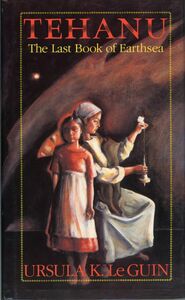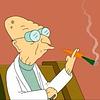Take a photo of a barcode or cover
dark
emotional
sad
tense
slow-paced
Plot or Character Driven:
Character
Strong character development:
Complicated
Loveable characters:
Complicated
Diverse cast of characters:
No
Flaws of characters a main focus:
No
challenging
dark
emotional
sad
tense
slow-paced
Plot or Character Driven:
Character
Strong character development:
Complicated
Loveable characters:
Complicated
Diverse cast of characters:
Yes
Flaws of characters a main focus:
Complicated
emotional
mysterious
slow-paced
Plot or Character Driven:
Character
Strong character development:
Yes
Loveable characters:
Yes
Diverse cast of characters:
Yes
Flaws of characters a main focus:
Complicated
Graphic: Ableism, Death, Fire/Fire injury
emotional
reflective
medium-paced
Plot or Character Driven:
Character
Strong character development:
Yes
Loveable characters:
Yes
Diverse cast of characters:
Yes
Flaws of characters a main focus:
Yes
I found this to be quite poignant and moving - Ged and Tenar are older, but also you have Le Guin herself writing about them and Earthsea as an older person too, and it's fascinating to see how the storytelling is different here. Although there are hints of a much more epic scope at play (possibly even more epic than the original trilogy of books), this one itself is quiet, intimate, meditative. In a similar fashion to The Tombs of Atuan, it takes place entirely on Gont, and it feels in many ways like a kind of soft reboot of that book. It was brave of Le Guin to revisit these characters and this place, and the result is really wonderful - it recontextualizes the earlier books while still fully respecting, and in no way cheapening or devaluing, them.
4.5 star maybe it’s 5. This is a book I should definitely reread because there’s so much depth to it. Just a content warning that there is r*pe and horrific physical abuse of a child not shown on page but mentioned.
Le Guin returns to Earthsea as an older woman and from an older perspective, shifting the focus from the powerful men of the world to the lessers of fantasy narrative - elderly, outcasts, children, Women.
The way Le Guin builds on and pulls back on established relationships and dynamics of power is absolutely breathtaking. The slow character work pierced by explosive violence or cruelty fills this book with tension, particularly when that cruelty is laid bare by the climactic actions within the story. It feels like nothing we have ever seen in the world of Earthsea, but of course it was always there. Of course it was. Everything with Therru had me on the verge of pure glee or tears coming out.
The way Le Guin builds on and pulls back on established relationships and dynamics of power is absolutely breathtaking. The slow character work pierced by explosive violence or cruelty fills this book with tension, particularly when that cruelty is laid bare by the climactic actions within the story. It feels like nothing we have ever seen in the world of Earthsea, but of course it was always there. Of course it was. Everything with Therru had me on the verge of pure glee or tears coming out.
dark
reflective
medium-paced
Plot or Character Driven:
Character
Strong character development:
Complicated
Loveable characters:
Yes
Diverse cast of characters:
No
Flaws of characters a main focus:
Complicated
Tehanu - 5/5
Wan ah the bestest beuks av ever read, Le Guin kin construct sic a tale as nae other author kin. The struggles ah Tenar, Therru and, tae sum extent, Ged are sae real n well done tha yah canne help gettin yersel invested.
Tis is a thoughtful beuk, nae action scenes r darin escapades just a wumin gaein aboot her lif.
I'd dae tis is a mair 'mature' storie tae, not just in terms ah its characters but alsa the plot and themes themsels.
O'erall, wan ah the best beuks av read, Le Guin can write.
Wan ah the bestest beuks av ever read, Le Guin kin construct sic a tale as nae other author kin. The struggles ah Tenar, Therru and, tae sum extent, Ged are sae real n well done tha yah canne help gettin yersel invested.
Tis is a thoughtful beuk, nae action scenes r darin escapades just a wumin gaein aboot her lif.
I'd dae tis is a mair 'mature' storie tae, not just in terms ah its characters but alsa the plot and themes themsels.
O'erall, wan ah the best beuks av read, Le Guin can write.
There’s no high fantasy adventure to be had here. Our heroes stay put on the island of Gont for a cold drama of loss, grief, shame, and regrets. Our villains aren’t the elusive Dark Ones or a corrupt mage at the end of the world, but instead domineering misogynists and child rapists. We see Earthsea not from the vantage point of the lofty heroes in positions of power but from the powerless, oppressed, and embittered. Ged has returned from the hole in the world, having journeyed through Death itself on the behalf of Earthsea, magic-less and empty. The great Arch-Mage who slayed dragons and restored the Ring of Erreth-Akbe to Havana, has been reduced to a mumbling, forgetful, old man who lives in humiliation and fear. He and Tenar pensively search for what it means to be merely a man and merely a woman.
“Who are we? What is it to be a man?”
“She did not feel she understood his shame, his agony of humiliation. Perhaps only a man could feel so. A woman got used to shame.”
“Did she think by crossing the sea, by learning other languages, by being a man’s wife, a mother of children, by merely living her life, that she could ever be anything than what she was? Their servant. Their food. Theirs to use for their needs and games.”
Ursula throughly explores the mind of a righteously angry woman living in a society that relentlessly attempts to subdue her and those she protects. Some of this gender exploration seems influenced by Taoist conceptions of the feminine and masculine energies (as she has admitted the series to be heavily Taoist in influence). But at the core of that thought is that the energies are two sides of the same coin and that each person is, at essence, neither man nor woman, and can be seen on display here:
“Is it different then for me, than women?”
“What isn’t deary?”
“I don’t know. It seems to me we make up most of the differences and then complain about them.”
But most of all Ursula explores the hollow places inside of us that search for meaning and identity when all we thought was important is stripped away and beaten out of us. I appreciated seeing Earthsea from this lowly vantage point which painfully reflects, not fantasy, but reality.
“Who are we? What is it to be a man?”
“She did not feel she understood his shame, his agony of humiliation. Perhaps only a man could feel so. A woman got used to shame.”
“Did she think by crossing the sea, by learning other languages, by being a man’s wife, a mother of children, by merely living her life, that she could ever be anything than what she was? Their servant. Their food. Theirs to use for their needs and games.”
Ursula throughly explores the mind of a righteously angry woman living in a society that relentlessly attempts to subdue her and those she protects. Some of this gender exploration seems influenced by Taoist conceptions of the feminine and masculine energies (as she has admitted the series to be heavily Taoist in influence). But at the core of that thought is that the energies are two sides of the same coin and that each person is, at essence, neither man nor woman, and can be seen on display here:
“Is it different then for me, than women?”
“What isn’t deary?”
“I don’t know. It seems to me we make up most of the differences and then complain about them.”
But most of all Ursula explores the hollow places inside of us that search for meaning and identity when all we thought was important is stripped away and beaten out of us. I appreciated seeing Earthsea from this lowly vantage point which painfully reflects, not fantasy, but reality.








